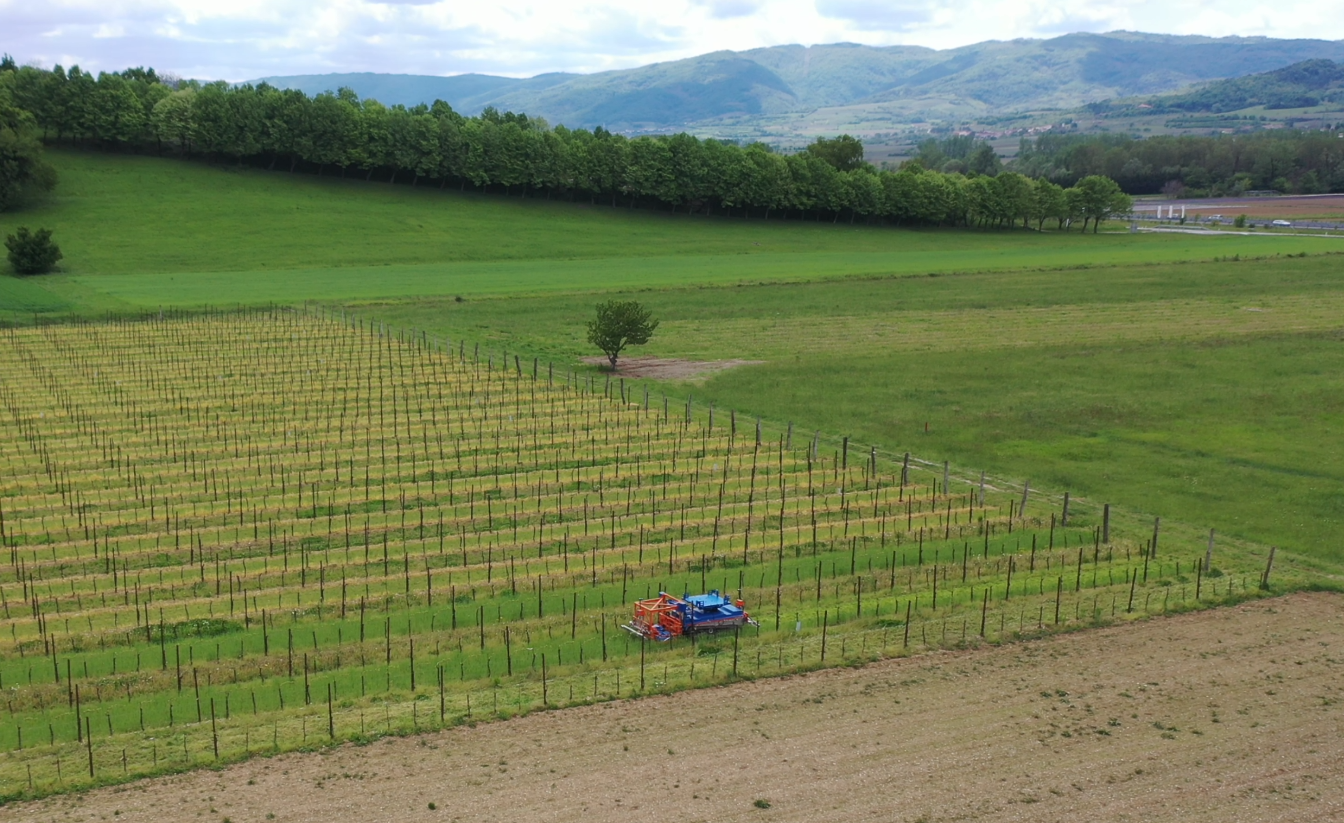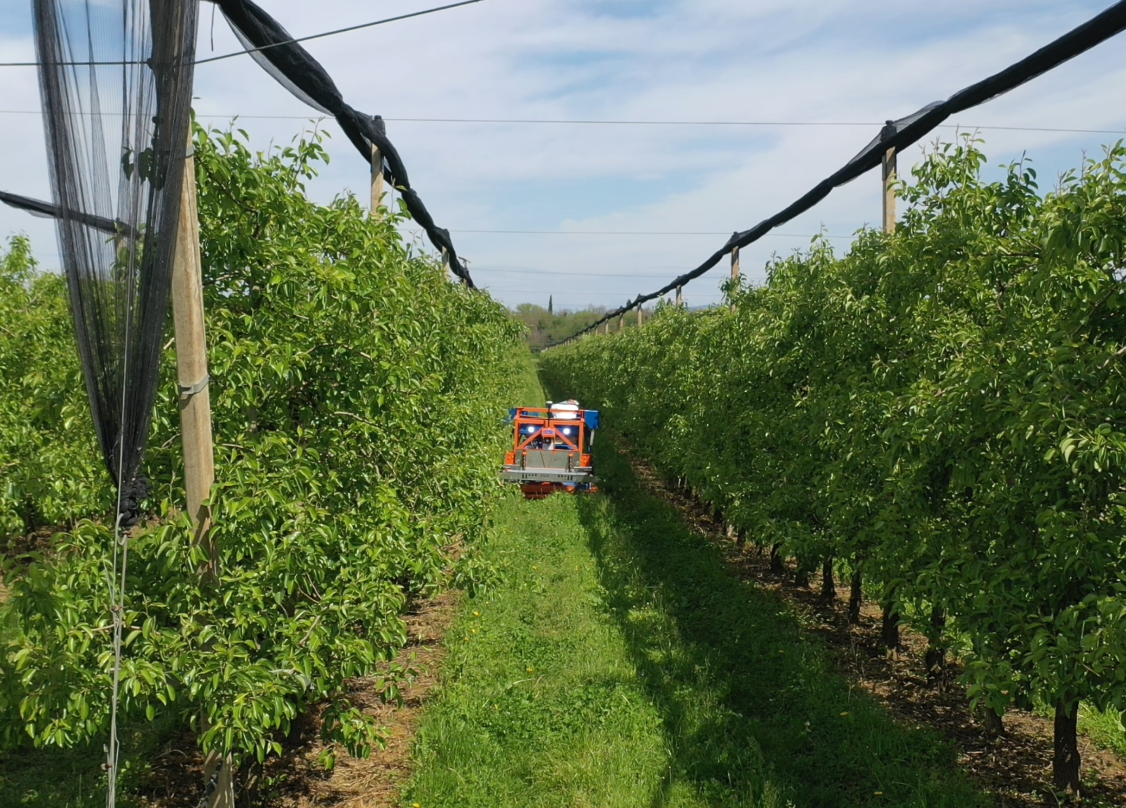Jun 1, 2021An agricultural robot Slopehelper challenges steep vineyards and orchards
Producing food can be an uphill struggle, in every sense of the word. With myriad challenges from labour sourcing to environmental concerns and margin pressure, today’s farmers welcome every innovation that can help them get ahead.
That’s particularly true for those operating in orchards and vineyards, where uneven land can make tending to crops particularly difficult. The good news is that help is at hand, in the shape of the Slopehelper system from PeK Automotive. The Slovenian manufacturer has developed a revolutionary autonomous robot that can carry out a range of operations from mowing, mulching and harrowing to branch cutting, pesticide spraying, fertiliser spreading and even harvesting. And crucially, it can do it all on some of the most challenging, steep terrain.
The development is welcome at a time when farmland is becoming scarcer and production more multi-faceted, and could open up valuable new opportunities for the horticulture and viticulture industries. A study published in January 2021 by Larissa Strub of Hochschule Geisenheim University notes that planting vines on steep slopes has enabled viticulture in climates and environments that might not otherwise be suitable for production, but warns that such locations are now under threat due to increasing costs and a lack of suitable mechanisation. With climate change adding to the headache, steep-slope production may become unviable for some.
Now, however, at less than the cost of a tractor, the Slopehelper opens up opportunities that previously seemed impossible thanks to a robotic system that is capable of balancing itself regardless of the specific task or inclination of the slope. It features a self-regulating cargo platform with autonomous horizontal load balancing, making sure the load always remains steady and in position, and it can even carry seasonal workers on their way to harvesting crops.


The machine moves with the help of two self-cleaning caterpillar blocks positioned at the side of the vehicle and connected to the frame via leaf springs. It is an approach that circumnavigates the typical problem posed by caterpillar vehicles, namely the height and weight caused by having the amortisation system located inside caterpillar blocks with suspension attached to the wheels. Instead, the Slopehelper’s unique design is more akin to that of a conventional motor car, making it light enough to transport to the field on a regular trailer but still able to provide the stability and convenience needed in field operations. With the transmission located inside the sealed body, there’s no need to worry about the impact of working in dirty and dusty field conditions either.
Slopehelper’s self-stabilising horizontal cargo platform, wide caterpillars and powerful construction mean it can handle slopes of up to 45 degrees while carrying a load capacity of as much as two tonnes. Thanks to the vertical gravity axis always being in the centre of the vehicle, the harvesting shelves and loads are always held horizontally in every direction. This revolutionary design makes it the world’s only solution of its kind, and means that growers do not suffer fruit loss of 20 per cent or more from being unable to reach difficult areas of the vineyard. It can even navigate wet soil and operate in all weather conditions.
Mikhail Kostkin, co-owner of PeK Automotive, explains that designing a machine that can operate in sloped environments was not a straightforward task. “It was a big challenge because, for example, if you are working with liquid for spraying, well, liquid is liquid – it will distribute according to the gravity vector. We decided to approach it by evaluating the cargo on top of the vehicle. Our system keeps cargo in the horizontal position, independently of the slope angle. This gives us outstanding characteristics when it comes to stability.”
The strength of the Slopehelper is its versatility, and that means its rugged frame and integrated lifting system can handle a wide variety of tasks. Growers might want to use it for carrying a standard fruit bin, or for connecting harvesting shelves and a front loader, thus transforming it into a fully operational harvesting machine. It is autonomous for up to 14 hours, offering operators a range of control options including fully automatic, a first-person view, visual remote control and a novel Follow Me mode whereby the machine follows an operator around the vineyard.
The system’s special design also means it can apply fertiliser in tricky environments. Existing fertilisers for vineyards and orchards are simple constructs made up of a bunker and spreading tube, but as they do not tend to have horizontal stabilisation systems they become ineffective on slopes. Slopehelper, by contrast, makes use of its cargo self-positioning system to allow bunkers with up to 1,000kg on slopes, making fertiliser application a much more straightforward endeavour.


Slopes and valleys have become a problem area for farmers as the need for mechanisation becomes more acute, and Kostkin believes that in addition to its other benefits, the Slopehelper will reduce accidents in vineyards and orchards. “Imagine a human who drives a tractor on a 35o slope, an almost 100 percent slope? It is very risky, and a lot of tractor accidents take place on slopes. Unfortunately, it will continue happening because humans will continue taking risky decisions. Yes, modern tractors are more or less adapted for that, with special inclinometers, support systems, and so on, but they nevertheless lack technology when compared to our machine. The huge advantage of our vehicle is that it is a machine – it is not a human, it cannot get tired, and will not take risks in situations where a human might say “okay, here maybe I can go uphill because I think I can manage it’.”
Farming is facing a huge number of challenges and a fight for space, but with the Slopehelper making slope and valley production cost effective and safer, a valuable avenue opens up that could have huge positive implications for orchard and vineyard managers.
For more information about the Slophelper robot, visit here.















